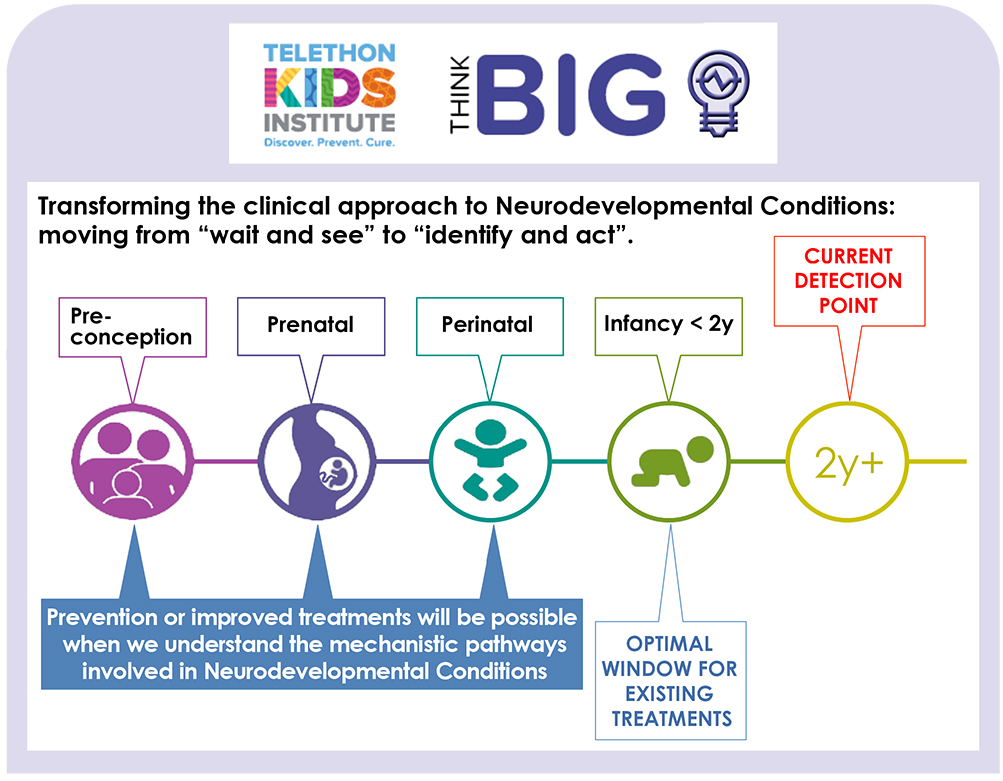What is the purpose of ASCEND?
The Australian Collaboration to Enhance Neuro-Development is working to build capacity for Australian researchers, across a range of disciplines, to conduct long-term research that will enable:
1. Early identification of children at high-risk of developing neurodevelopmental conditions through the creation of risk profiles incorporating:
- exposure to known epidemiological risk factors
- readouts from cutting-edge assessment tools
- measurement of biological markers linked to neurodevelopmental deficits.
2. Early intervention before age 2 years to enhance neurodevelopment, utilising interventions:
- that are based on principles of developmental neuroplasticity and that target mechanistic pathways associated with specific risk profiles
- that have been systematically trialed using an adaptive intervention trial design.
3. Effective, sustainable translation and implementation informed by:
- Engagement with key stakeholders at the community, service provider and policy levels
- Economic evaluation using a transdiagnostic, multi-sector approach
- Fiscal and policy mapping to understand relevant policy mechanisms and impacts.

What catalysed the creation of ASCEND?
With funding support from key partner BHP, in 2017 The Kids Research Institute Australia established the THINK BIG scheme to drive the development of new long-term research programs that would:
- be innovative, multi-disciplinary, and highly-collaborative
- address key issues affecting child and youth health and wellbeing
- deliver high-impact, transformative benefits
Researchers from three The Kids teams working on different neurodevelopmental conditions (Disability, Fetal Alcohol Spectrum Disorder, Autism) came together to envisage a trans-diagnostic program that could enable the approach to children at high-risk of neurodevelopmental conditions to shift from “wait and see” to “identify and act”.
Their proposal entitled “Precision pathways for young children at risk of Neurodevelopmental Disorders: Early identification and adaptive intervention starting from the prenatal period” was awarded seed funding and project management support under the THINK BIG scheme to enable development of this research program, which is now being driven through ASCEND.
Read the ASCEND Program Overview here.
Current ASCEND Projects
- Working Towards A Shared Framework in the Diagnosis of Neurodevelopmental Disorders in Australia: A Gap Analysis
- Investigation into the feasibility of using facial scans as a non-invasive component of screening for neurodevelopmental risk
- Promoting psychological wellbeing in pregnancy: impacts on maternal mental health and neurodevelopmental vulnerability in offspring
- ORIGINS of neurodevelopmental risk and resilience: Examining neurodevelopmental trajectories of infants in the ORIGINS cohort
- Investigating the utility of eye tracking in identifying atypical neurodevelopment in infants.

